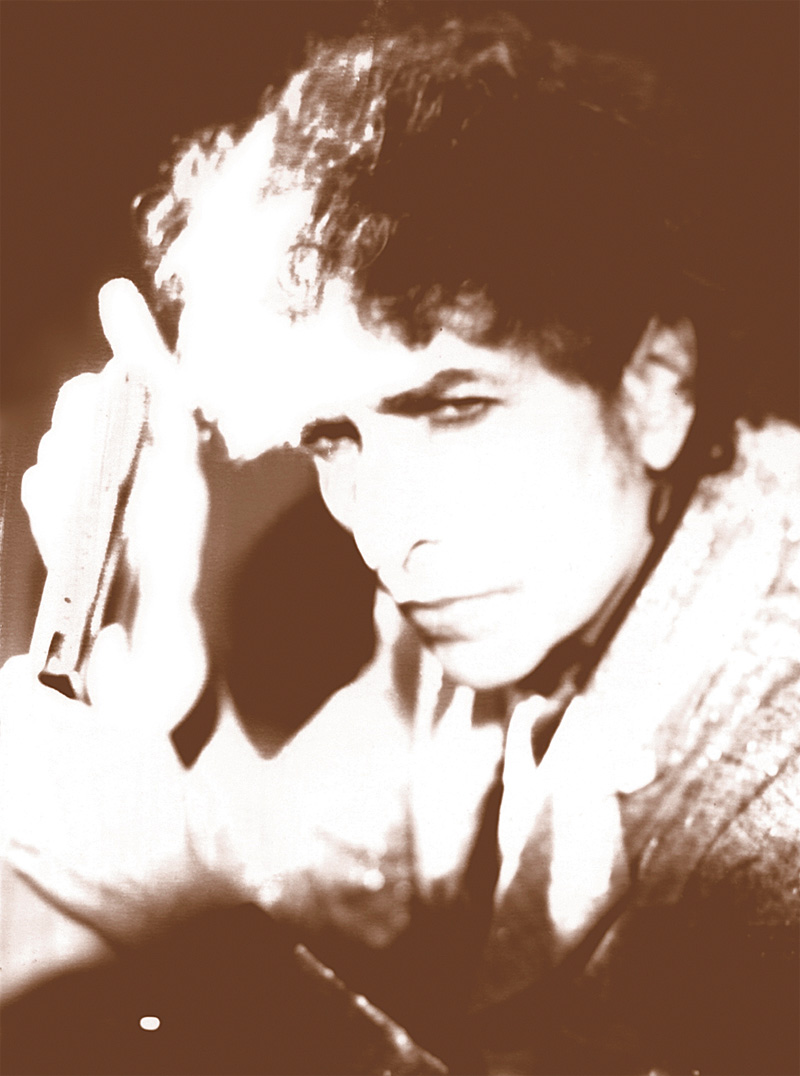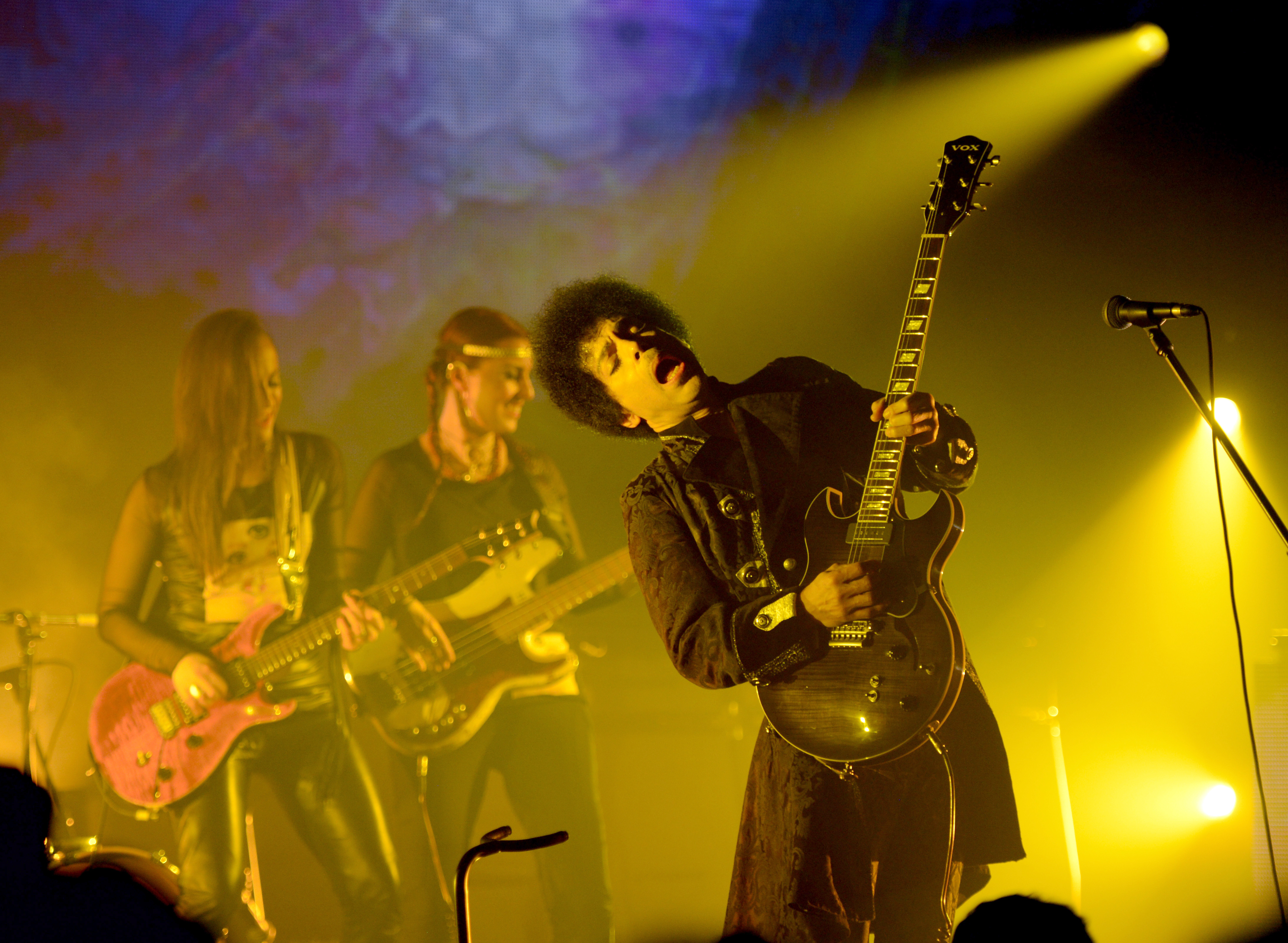No one played me Bob Dylan’s music growing up, thank God. My parents were a little older and definitely not into nasal caterwauling and country warbling. That was a part of the ’60s they hated, along with Southern cops and the war in Vietnam. So the first time I really heard Bob Dylan was high school, late ’80s, after I was already marinated in music, opinionated, informed. I’d heard Dylan covers plenty—Hendrix, the Byrds—but it wasn’t until college that I started meeting people who were putting on that particular brand of intellectual pretension that cloaked itself in anti-intellectualism and Marxism, who claimed to find the “real America” in Dylan’s stripped-down arrangements and scratchy yodel.
I didn’t get his music right off the bat—I was married to big, hooky choruses and long, indulgent guitar solos—so I had to struggle a little. I struggled at first even to stand it, mostly because I couldn’t stand the kids in wool caps and army jackets who misused their big vocabulary words and swore that Dylan would change my life. I was pretty sure that if my life was going to change, it wasn’t going to happen from looking down the barrel of some out-of-tune hillbilly music. But enough of my college friends insisted that Dylan was great that I kept trying. Despite the undeniable truth that some of Dylan’s songs were untouchably great, I wasn’t hip to what the big deal was. THIS guy? This is the famous Bob Dylan? This monotone sneering over the same endlessly repeating three chords, interminable verses, nonsensical words? Why is this guy such a legend?
Eventually I came around, but I’m grateful that I heard Dylan this way, grateful I wasn’t steeped in his lore from the outset. Because Dylan’s legend is insane; it blinds people to his actual legacy as a musician, and the lure of its appeal reinforces the pernicious lie of the pop-music prophet. Dylan is one of the fountainheads of pop stardom, and certainly he’s one of the first repositories of “authenticity” from whence all claims of authenticity in pop follow. And the idea of “authenticity” having anything to do with pop music is one of the bloodiest lies in modern history. Authenticity has NOTHING to do with pop music. That’s a belief system propagated by German music writers and humorless teenage assholes. I’ve known a lot of musicians, and after a while you realize they’re all authentic, all equally authentic. It’s hard enough to write enjoyable songs without also trying to put over some scam on people. I guarantee that if you put Katy Perry and Leonard Cohen in the same room, they’d feel like members of the same tribe. It’s only music fans who need to call one thing “real” and another “fake.” What the fans treasure as honest and real is almost always just a question of taste. Either you like it or you don’t—trite, but true.
Dylan’s significance hinges on one of America’s central fallacies: the idea that the simple man is more honest than the educated man, the farmer and laborer more trustworthy than the lawyer or professor, the poor person closer to the source, closer to God, than the middle-class person. Dylan copied the music and the sound of sharecroppers and mountain men, and their presumed honesty was conferred on him. If the Appalachian dirt farmer just naturally has more integrity and connection to the headwaters of art than the big-city lawyer, it follows that the Minnesota snot-nose who sounds most convincingly like an Appalachian dirt farmer must share that integrity—with the added advantage of possessing big-city irony and detachment in place of the inconvenient racism and plain stupidity the dirt farmer might bring to the table.
So Dylan got lifted by a postwar world desperate to have the simple truth be the solution to modern problems. Race riots? Nuclear Armageddon? Thank God we found this sneering kid from the Midwest to straighten it all out for us. I don’t blame him for the way he acted; my God, he was just a child. A child being told that he was a prophet, or a seer, by a bankrupt culture he barely understood. Either he was the last honest man or the first one. He was no more petulant or gaseous than any other smarty-pants would be in that situation. Rock musicians who become famous at a young age are encouraged to make a categorical error, encouraged to think that because they’re good at one thing they must be good at all things. They are confirmed in the young person’s belief that they already know everything, and so they lose the ability to hear that they’re wrong—or worse, lose the ability to hear that they don’t even know enough about a thing to be wrong. So they start talking about politics, or religion, or even love, with an authority that no 22-year-old has earned. And we encourage them, as fans, because we’re always looking for a savior.
So not knowing Dylan before I was 20, not being told that he was the savior until I could judge for myself, saved me a lot of heartbreak later on. I wasn’t primed to think that saviors were a thing, or certainly not a thing I was looking for in rock and roll. I didn’t get too worked up about the Clash, or Fugazi, or the Minutemen. I didn’t get off on their tunes that much, so the fact that they were held to mean something profound, that their legacy eclipsed their prowess, wasn’t something I shed a lot of tears over. Nothing about them had a greater significance to me than simply how good their choruses were.
And to his everlasting credit, Dylan never believed what people said about him. He kept doing his thing, caterwauling, kept doing things for the hell of it, the fun of it. That’s why I like him, and I discovered it for myself.
John Roderick is the singer and songwriter behind the Long Winters.








